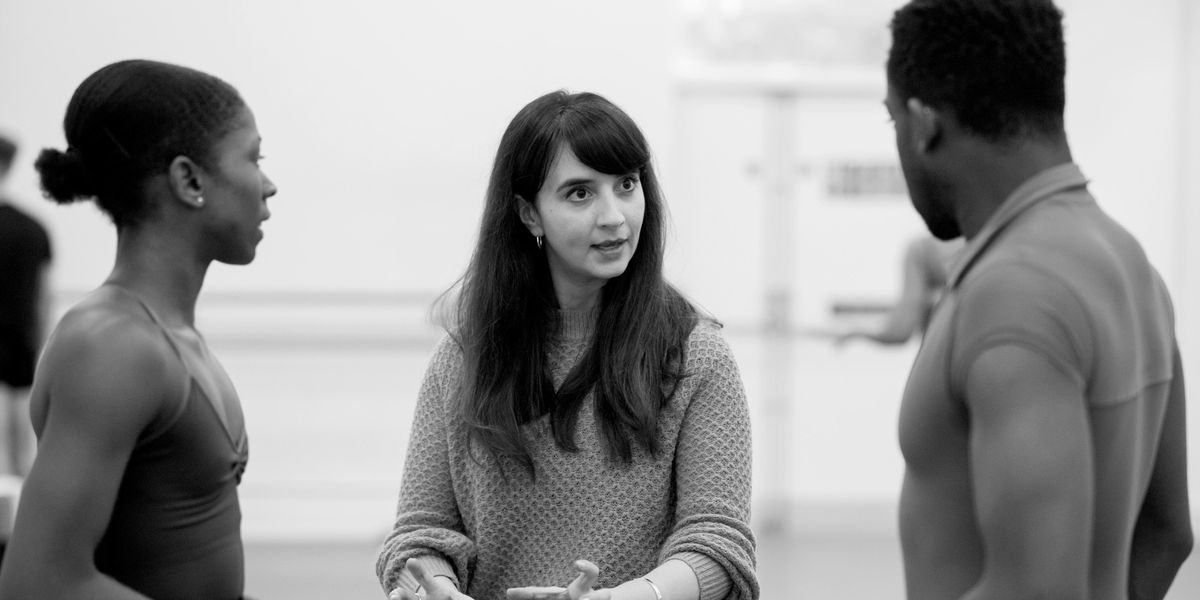Ballet Black’s Cassa Pancho Is Fighting Racism in Ballet Across the UK
Revolutionizing ballet in England was not part of the original plan for Cassa Pancho. That all changed in 2001 after she decided to write her dissertation on Black ballerinas and discovered that there were none employed by any of the country’s ballet companies at that time.
She recalls being told, “There’s already Dance Theatre of Harlem.” Arthur Mitchell founded DTH in 1969 to diversify the art form, but, as Pancho points out, “the answer can’t be ‘Go to America if you’re Black and want to dance ballet.’ DTH is wonderful, but are we supposed to wait for them to tour here to see Black people onstage?”
Pancho founded Ballet Black in 2001 to provide dancers of Black and Asian descent with training and performing opportunities. Under her direction, the London-based company has charted a steady pathway towards shattering the racist notion that dancers of color are only suitable for hip hop, tap and modern dance.
Soon after launching the company, she also founded the Ballet Black Junior School and Associate Programme to provide excellence in classical ballet training from teachers of Black, Asian and Caucasian heritage for children and young people from all racial and socioeconomic backgrounds. “People have always been confused by me because of this,” Pancho says while tugging her straight hair. As the daughter of a Black father, who emigrated to the UK from the Caribbean, and a white, British mother, Pancho, who grew up studying ballet, knows that “this notion that Black people can’t do ballet is absolutely racist.”
The school has proven a safe and necessary harbor for many of her students. “We’re not training a little army of people just to go into our company,” Pancho says. “The aspiration is not just to join Ballet Black but to go anywhere because you can; because you’ll be welcome.”
Pancho’s antiracist advocacy work in educational outreach and programming has resulted in a loyal fan base throughout the UK that is just as diverse as the company’s eight dancers. This is just one of the many reasons that she was made a Member of the Most Excellent Order of the British Empire (MBE) for Services to Classical Ballet in 2013 and awarded the Freedom of the City of London award in 2018.
Pancho never forgets who she is fighting for: ordinary people who crave visions of their own lives onstage. Rather than commission glittering baubles for the royal court, she concentrates on engaging her audiences with work that speaks to their lived experiences.
That dedication to telling accessible stories is what inspired her to commission senior artist Mthuthuzeli November for his choreographic debut on the company last year. A native of South Africa, with Ingoma, he captured the suffering of Black South African miners and their communities during the miners’ strike in 1946, a precursor event to the anti-apartheid movement. The ballet received both the 2020 Olivier and Black British Theatre awards for best dance production.
Even with all of the accolades, Pancho has had to contend with racist trolling across social media—just one example includes excoriating her for advocating for tights and pointe shoes that match the flesh tones of Black and Asian dancers—and colleagues outside Ballet Black who claim that racism in ballet does not exist.
Happily, others are starting to address the issue, including the six dancers of African descent at The Royal Ballet who spoke candidly about their feelings on race shortly before the company’s World Ballet Day celebration.
“I wanted to cheer for that,” Pancho says. “As a student I tried to get The Royal Ballet School and others to tell me how many Black students they had and what life was like for them. None of them replied. So, to see, 20 years later, six dancers on that stage talking was like, ‘Wow! For The Royal Ballet, that’s a huge step.’ But we mustn’t be fooled. The work isn’t done. It’s never done.”
For now, that work has shifted online while contending with the pandemic shutdown. Pancho has met that challenge and is currently developing a UK-wide database of classical ballet teachers of Black and Asian descents, consulted with other ballet companies on going beyond virtue signaling, and written a shortlist of equality standards to instruct dance companies and schools on how to treat nonwhite people.
She also reopened Ballet Black’s school on Zoom and launched #BBOnFilm, a series of new works created specifically for online consumption.
The series allows the company’s dancers to return to work with choreographers, such as the former Alvin Ailey American Dance Theater star Hope Boykin, on Zoom. On top of her other roles, Pancho is serving as chief safety officer to ensure that the dancers remain healthy.
The circumstances are far from ideal. And yet, Pancho refuses to keep her head down until the day comes when a company that is dedicated to Black and Asian dancers is no longer necessary.
Something that keeps her going is the memory of one of her students being asked to move away from the windows so that she didn’t catch any more sunlight and get darker. “This was said in 2019,” Pancho says. “We may not have Confederate flags waving like in America, but we do have a race problem in the UK.”




